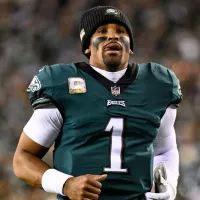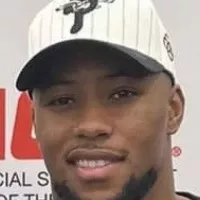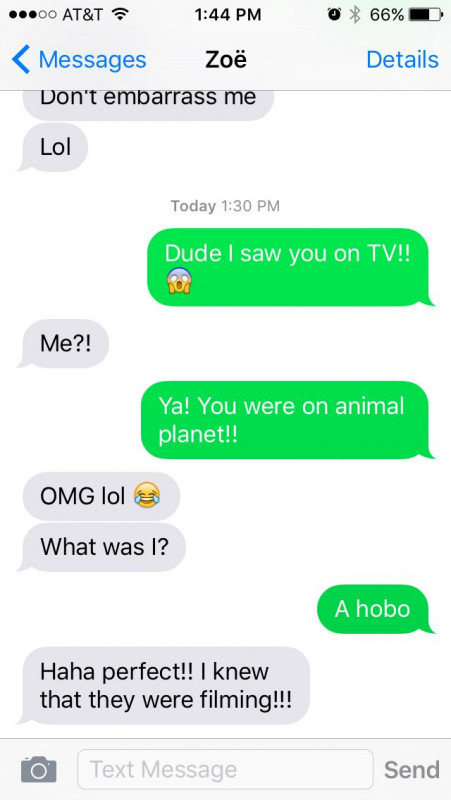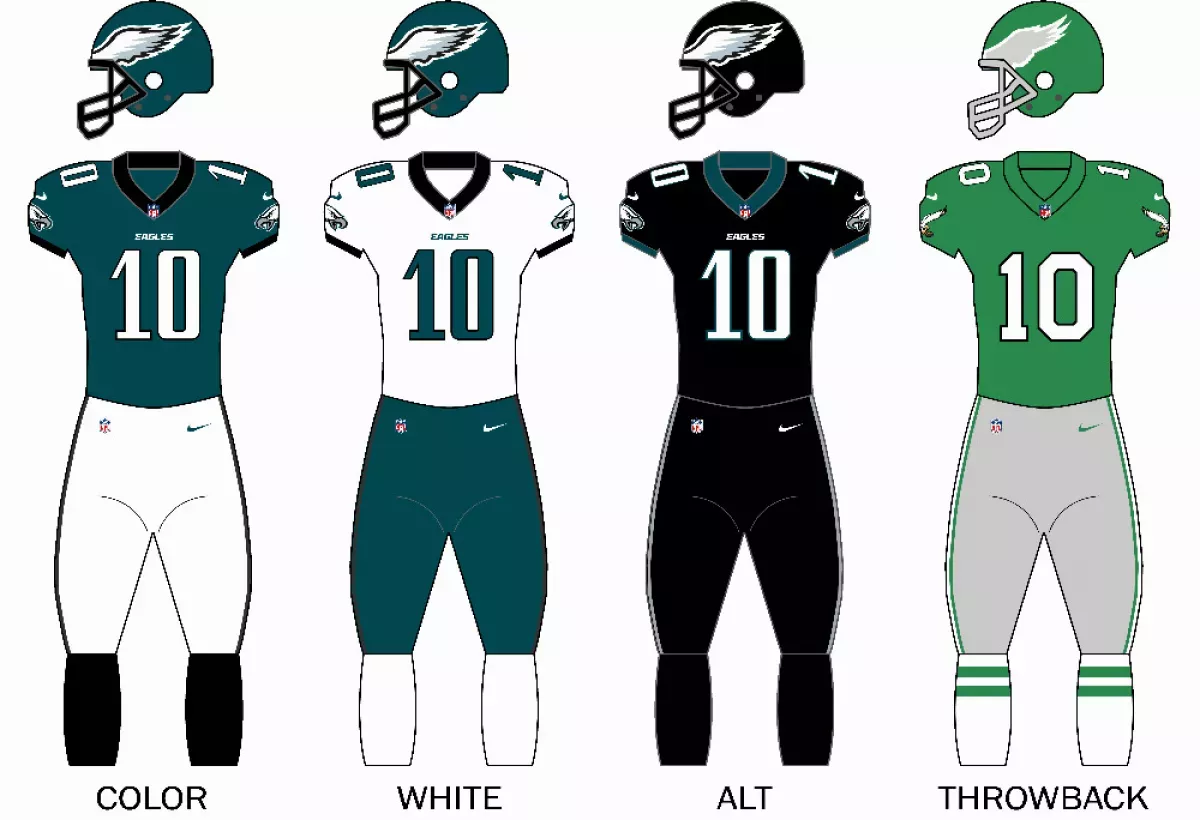The Philadelphia Eagles are a professional American football team based in Philadelphia, Pennsylvania. As a member of the National Football Conference (NFC) East division, they compete in the National Football League (NFL). Their home games are played at Lincoln Financial Field, located in the South Philadelphia Sports Complex. The Eagles have a significant history in the NFL, marked by periods of success and passionate fan support.
1909: Frankford Athletic Association Disbands
Prior to the 1909 football season, the original Frankford Athletic Association apparently disbanded.
1912: Frankford Athletic Association Reforms
In 1912, several original players from the 1899 football team kept the team together and carried the "Frankford" name again to become the Frankford Athletic Association.
1922: Frankford Absorbs Union Quakers, Captures City Championship
In 1922, the Frankford Yellow Jackets absorbed the Philadelphia City Champion team, the Union Quakers of Philadelphia, and captured the unofficial championship of Philadelphia.
1923: Yellow Jackets Continue Success
During the 1923 season, the Frankford Yellow Jackets compiled a 6-2-1 record against teams from the National Football League.
1924: NFL Franchise Granted
In 1924, the Frankford Athletic Association was granted an NFL franchise, thus becoming the Frankford Yellow Jackets.
1926: NFL Championship Win
In 1926, the Frankford Yellow Jackets won the NFL championship.
1927: NFL Changes
In 1927, the NFL changed from a sprawling Midwestern-based association to a narrower, major-market league.
1928: Providence Steam Roller Win
The Providence Steam Roller won the NFL title in 1928.
1931: Yellow Jackets Assets Awarded to New Group
After more than a year of searching, the National Football League awarded the liquidated assets of the defunct Yellow Jackets organization to an ownership group led by Bert Bell and Lud Wray in 1931.
1931: Frankford Yellow Jackets Suspension
In 2007, to celebrate the team's 75th anniversary, the Eagles wore throwback jerseys based on those worn by the Philadelphia Eagles in the team's inaugural season, and had been the same colors used by the Frankford Yellow Jackets franchise prior to its suspension of operations in 1931.
1931: Bankruptcy and Cease of Operations
Midway through the 1931 season, the Frankford Yellow Jackets went bankrupt and were forced to cease operations.
October 15, 1933: First Game
On October 15, 1933, the Philadelphia Eagles played their first game against the New York Giants at the Polo Grounds in New York City, losing 56-0.
1933: Eagles and Steelers Inaugural Season
In 1933, both the Philadelphia Eagles and the Pittsburgh Steelers began their inaugural seasons and were part of the same division, marking the start of a major rivalry.
1933: Beginning of Eagles-Giants Rivalry
In 1933, the Eagles and the New York Giants began their rivalry, which became one of the oldest and most notable in the NFL.
1933: Eagles Join NFL Eastern Division
In 1933, the Philadelphia Eagles became part of the NFL Eastern Division.
1933: Franchise established
In 1933, the Philadelphia Eagles franchise was established as a replacement for the bankrupt Frankford Yellow Jackets, with Bert Bell leading the group that secured the rights to an NFL franchise in Philadelphia.
1933: Eagles' Team Colors: Light Blue and Yellow
In 1933, the Philadelphia Eagles' team colors were light blue and yellow.
1933: Eagles Join NFL
In the 1933 NFL season, the Philadelphia Eagles were one of three teams to join the NFL as expansion teams.
1933: Eagles and Redskins in Same Division
The Eagles and the Washington Redskins/Commanders played in the same division in the Eagles' inaugural 1933 season.
1933: Eagles-Giants Rivalry Begins
The Eagles' rivalry with the New York Giants began in 1933 with the founding of the Eagles and slowly strengthened when both teams came to relative prominence in the 1940s and 1950s.
October 21, 1934: First Meeting Between Eagles and Redskins
On October 21, 1934, the Eagles and Washington Redskins/Commanders played their first meeting during Washington's first year under the Boston Redskins moniker; the Redskins defeated the Eagles 6–0 at Fenway Park.
1934: Domination by a Few Teams
Between 1927 and 1934, three teams, the Chicago Bears, New York Giants, and Green Bay Packers, won all but one title with the exception of the Providence Steam Roller.
1934: Best Finish in Early Seasons
In 1934, the Philadelphia Eagles tied for third in the East, marking their best finish in their first decade.
1934: Eagles' Team Colors: Light Blue and Yellow
In 1934, the Philadelphia Eagles' team colors remained light blue and yellow.
1935: College Draft Proposal
In 1935, Bert Bell proposed an annual college draft to equalize talent across the league.
1935: Eagles Add Green to Uniforms
In 1935, the Eagles added green to their uniforms, establishing kelly green, silver, and white as team colors for several decades.
1935: Training Camp at Chestnut Hill Academy
In 1935, the Eagles held their training camp at Chestnut Hill Academy.
1936: Move to Municipal Stadium
From 1936, the Philadelphia Eagles played at Municipal Stadium in South Philadelphia.
1936: Bell Becomes Sole Owner
In 1936, the Philadelphia Eagles suffered significant financial losses and were sold through a public auction. Bert Bell was the only bidder and became the sole owner of the team.
1937: Eagles Finish Season 2-8-1
The Eagles finished the 1937 season with a 2–8–1 record.
1939: Eagles Continue at Municipal Stadium
In 1939, the Eagles continued playing at Municipal Stadium in South Philadelphia.
1939: Training Camp at Saint Joseph's University
In 1939, the Eagles held their training camp at Saint Joseph's University.
December 1940: Pennsylvania Polka
In December 1940, Bert Bell intervened to stop the sale of Art Rooney's Steelers and exchanged the Eagles roster for the Steelers roster in a series of events known as the Pennsylvania Polka.
1940: Lease Signed for Shibe Park
In 1940, Bert Bell signed a lease for Shibe Park after balking at a rent increase for Municipal Stadium.
1941: Eagles' Season Record
In 1941, the Philadelphia Eagles finished the season with a 2-8-1 record.
1941: Home Opener at Municipal Stadium, Move to Shibe Park
In the 1941 season, the Philadelphia Eagles played their home opener at Municipal Stadium, and then moved to Shibe Park.
1942: Eagles' Season Record
In the 1942 season, the Philadelphia Eagles finished the season with a 2-9 record.
1943: Team Merger with Steelers
In 1943, due to player shortages from World War II, the Philadelphia Eagles merged with the Pittsburgh Steelers to form the "Phil-Pitt Combine", known as the Steagles.
1943: Training Camp at Saint Joseph's University
In 1943, the Eagles held their training camp at Saint Joseph's University.
1944: First Winning Season
In 1944, the Philadelphia Eagles had their first winning season in team history, led by head coach Greasy Neale and running back Steve Van Buren.
1946: Training Camp at Saranac Lake
From 1946, the Eagles held their training camp at Saranac Lake.
1947: First NFL Championship Game Appearance
In 1947, the Philadelphia Eagles reached the NFL Championship game for the first time, losing to the Chicago Cardinals 28-21.
1948: Eagle in Flight Team Logo
From 1948 to 1995, the team logo was an eagle in flight carrying a football in its claws.
1948: NFL Championship Win
In 1948, the Philadelphia Eagles won their first NFL Championship against the Chicago Cardinals with a score of 7-0 during a snowstorm.
1948: Eagles previous season-high score set
The Eagles offense scored 51 touchdowns, most in franchise history, passing the previous season-high set back in 1948.
1948: Training Camp at Saranac Lake
Through 1948, the Eagles held their training camp at Saranac Lake.
1949: First Division Title Since 1949
In 1949, the Eagles achieved their first division title. The team's 1960 season was the first title since this.
1949: Eagles End Participation in NFL Eastern Division
In 1949, the Eagles concluded their time in the NFL Eastern Division.
1949: NFL Championship Win
In 1949, the Philadelphia Eagles won their second consecutive NFL Championship, defeating the Los Angeles Rams 14-0, and Chuck Bednarik was selected as the first overall pick in the NFL draft.
1949: Best Rushing Offense Since 1949
In 2021, the Eagles achieved their best rushing offense since the 1949 Eagles team, marking a significant milestone.
1949: Team Sold to "Happy Hundred"
Prior to the start of the 1949 season, the Philadelphia Eagles were sold by Thompson to a syndicate of 100 buyers, known as the "Happy Hundred".
1950: Greasy Neale Retires
Following the 1950 season, Greasy Neale retired as head coach of the Philadelphia Eagles.
1950: Eagles Move to National Conference
In 1950, the Eagles transitioned to the National Conference.
1950: Loss to Cleveland Browns
In 1950, the Philadelphia Eagles opened the season with a 35-10 loss to the AAFC champion Cleveland Browns, and never recovered, finishing the season 6-6.
1951: Training Camp Moved to Hershey
In 1951, the Philadelphia Eagles relocated their training camp to Hershey.
1951: McMillin Forced to Retire
Two games into the 1951 season, Bo McMillin was forced to retire as head coach of the Philadelphia Eagles due to a terminal stomach cancer diagnosis.
1953: Eagles Move to Eastern Conference
In 1953, the Eagles moved to the Eastern Conference after a stint in the National Conference.
1954: Shibe Park Renamed Connie Mack Stadium
In 1954, Shibe Park was renamed Connie Mack Stadium.
1954: Eagles Add Logo to Helmets
In 1954, the Eagles, along with the Baltimore Colts, became the second team ever in the NFL to put a logo on their helmets, featuring silver wings on a kelly green helmet.
1957: Move to Franklin Field
After the 1957 season, the Philadelphia Eagles moved from Connie Mack Stadium to Franklin Field at the University of Pennsylvania.
1958: Hiring of Buck Shaw and Acquisition of Norm Van Brocklin
In 1958, the Philadelphia Eagles took several steps to improve, hiring Buck Shaw as head coach and acquiring quarterback Norm Van Brocklin in a trade with the Los Angeles Rams.
1959: Bert Bell's Death
During the 1959 season, former Eagles owner and NFL commissioner Bert Bell attended the Eagles game on October 11 against the Pittsburgh Steelers and suffered a heart attack during the fourth quarter, dying later that day.
September 30, 1960: Eagles Win First Game Against Cowboys
On September 30, 1960, the Eagles won the first game in the rivalry against the Dallas Cowboys, 27–25.
November 20, 1960: The Hit
On November 20, 1960, Chuck Bednarik delivered "The Hit" on Frank Gifford at Yankee Stadium during a game against the New York Giants. Bednarik's tackle resulted in Gifford being stretchered off the field with a concussion, leading to Gifford's retirement for 18 months. This play was later ranked as the 44th greatest in NFL history.
December 26, 1960: 1960 NFL Championship Game
On December 26, 1960, the Philadelphia Eagles defeated Vince Lombardi's Green Bay Packers in the NFL Championship Game. Chuck Bednarik played both offense and defense, ending the game by tackling Jim Taylor to secure the victory, marking Lombardi's only championship game loss.
1960: Khayat on Eagles Championship Team
In 1960, Ed Khayat was a defensive lineman on the Eagles' NFL championship team. He became the head coach in 1971.
1960: Van Brocklin's Retirement and Coaching Disagreement
In 1960, Norm Van Brocklin planned to retire from playing and succeed Buck Shaw as head coach of the Philadelphia Eagles. However, ownership instead promoted Nick Skorich, leading to Van Brocklin's departure and his taking the head coach position for the Minnesota Vikings.
1960: Celebrated Season and Championship
In 1960, the Eagles had one of their most celebrated seasons, led by veterans Chuck Bednarik and Norm Van Brocklin. The team won its first division title since 1949 with grit and talent, aided by Pro Bowl receivers Tommy McDonald and Pete Retzlaff.
1960: Throwback Uniforms
In the 2010 season against the Green Bay Packers, on September 12, 2010, the Eagles wore uniforms similar to the ones that were worn by the 1960 championship team in honor the 50th anniversary of that team.
1961: Jurgensen Takes Over, Team Turmoil
In 1961, Sonny Jurgensen became the Eagles' starting quarterback after Van Brocklin's departure. The team finished a half-game behind the New York Giants, with a 10-4 record. Despite the on-field success, the franchise experienced turmoil.
1962: Eagles Struggling Before 1976
From 1962 to 1975, the Eagles had only one winning season. Dick Vermeil was hired in 1976 to address this.
1962: Injury-Decimated Team and Loss to Packers
In 1962, the Eagles team was significantly impacted by injuries, resulting in only three wins. They suffered a notable 49-0 loss at home to the Green Bay Packers.
1963: Sale of the Team to Jerry Wolman
In 1963, the remaining shareholders of the Eagles sold the team to Jerry Wolman, a 36-year-old Washington developer, for $5.505 million.
1964: Hiring of Joe Kuharich and Santa Claus Incident
In 1964, Jerry Wolman hired Joe Kuharich as coach with a 15-year contract. The team's failures during this period were highlighted by the Santa Claus incident, where fans pelted Santa Claus with snowballs during a halftime Christmas pageant.
1966: End of Eagles-Steelers Division Rivalry
In 1966, the Eagles and Steelers' division rivalry came to an end as they were placed in separate divisions, though they remained in the same conference.
1966: Eagles End Participation in Eastern Conference
In 1966, the Eagles ended their time in the Eastern Conference.
1966: Winning Season and Playoff Bowl Loss
In 1966, the Eagles had a winning season, finishing second in the NFL Eastern Conference. They lost to the Baltimore Colts in the Playoff Bowl by a score of 20-14, which was held at the Orange Bowl in Miami.
1967: Teams Placed in Separate Divisions
In 1967, the Eagles and Steelers were placed in separate divisions, but remained in the same conference for three years.
1967: Eagles Finish 6-7-1
In 1967, the Philadelphia Eagles concluded the season with a record of 6 wins, 7 losses, and 1 tie.
1967: Training Camp in Hershey
In 1967, the Philadelphia Eagles held their training camp in Hershey.
1968: Snowballs Thrown at Santa Claus
During the 1968 season, Philadelphia Eagles fans, frustrated with the struggling 2–11 team, famously pelted snowballs at an individual dressed as Santa Claus during a halftime Christmas celebration, contributing to the team's reputation for bad behavior.
1968: Eagles Record a 2-12 Season
In 1968, the Philadelphia Eagles experienced a significant downturn, ending the season with a 2-12 record.
1968: Training Camp Held at Albright College
In 1968, the Philadelphia Eagles held their training camp at Albright College.
1969: Stylized Eagle Logo
From 1969 to 1972, the eagle logo took on a more stylized look.
1969: Leonard Tose Buys the Team and Fires Kuharich
In 1969, Leonard Tose purchased the Eagles from Jerry Wolman for $16.155 million. He immediately fired Coach Joe Kuharich and appointed Pete Retzlaff as general manager and Jerry Williams as head coach.
1969: Eagles Wear Two Helmet Versions
In 1969, the Eagles wore two helmet versions: Kelly green with white wings in road games, and white with kelly green wings at home.
1969: AstroTurf Installation
In 1969, the grass field at Franklin Field was replaced by AstroTurf, making Franklin Field the first NFL stadium to use artificial turf.
1970: Eagles Wear White Helmets Exclusively
From 1970 to 1973, the Eagles wore the white helmets with Kelly green wings exclusively.
1970: Eagles Placed in NFC East
In 1970, during the league's reformation into the NFC and AFC, the Eagles were placed in the NFC East.
1970: Last Season at Franklin Field
In 1970, the Philadelphia Eagles played their last season at Franklin Field, finishing last in their division with a 3-10-1 record.
1970: Steelers Move to the American Football Conference
In 1970, the Pittsburgh Steelers moved to the American Football Conference (AFC), while the Philadelphia Eagles remained in the National Football Conference (NFC), reducing the frequency of their games.
1970: NFC East Placement and Rivalry
In 1970, with the merger of the NFL and AFL, the Eagles were placed in the NFC East Division. The Eagles' rivalry with the New York Giants, dating back to 1933, is one of the oldest and best in the NFL.
1971: Move to Veterans Stadium and Coaching Change
In 1971, the Eagles moved to Veterans Stadium. After blowout losses, Jerry Williams was fired and replaced by Ed Khayat. A trade involving quarterback Norm Snead left the Eagles with limited quarterback options. Bill Bradley led the NFL in interceptions.
1972: Don McCafferty's Firing
In 1972, Don McCafferty of the Baltimore Colts was fired, marking a rare instance of a head coach being let go within three years of winning a Super Bowl. This situation was mentioned in relation to Doug Pederson's firing in 2021.
1972: Surprise Wins and the "Johnny Rodgers Bowl"
In 1972, the Eagles finished with a 2-11-1 record, with surprise wins against the Kansas City Chiefs and the Houston Oilers. The game against the Oilers was dubbed the "Johnny Rodgers Bowl," influencing the 1973 NFL draft.
1972: Stylized Eagle Logo
The team's eagle logo had a more stylized look in 1972.
1972: Training Camp at Albright College
Through 1972, the Philadelphia Eagles held their training camp at Albright College.
1973: McCormack Hired, Infusion of Vitality
In 1973, Mike McCormack was hired as head coach, and Roman Gabriel and Harold Carmichael revitalized the offense.
1973: Training Camp at Widener University
In 1973, the Philadelphia Eagles moved their training camp to Widener University.
1973: Team Name Added Below Eagle Logo
In 1973, the team's name was added below the eagle, returning to its pre-1969 look.
1973: Eagles Select Charle Young
In 1973, with the second overall pick in the NFL draft, the Eagles selected USC tight end Charle Young.
1974: Addition of Bill Bergey
In 1974, Jim Murray began adding talent to the defensive side, including future Pro Bowl linebacker Bill Bergey.
1974: Eagles Standardize Helmet Design
In 1974, Joseph A. Scirrotto Jr. designed the silver wings within a white outline on a kelly green helmet, which became the standard for over two decades.
1975: McCormack Fired After Losing Season
In 1975, Mike McCormack was fired after the Eagles went 4-10.
1975: Eagles Record a 4-10 Record
In 1975, the Philadelphia Eagles concluded the season with a 4-10 record. Dick Vermeil was hired in 1976 due to this
1976: Dick Vermeil Hired
In 1976, Dick Vermeil was hired to coach the struggling Eagles. Despite the young talent, the team finished with a 4-10 record.
1976: Merrill Reese Joins the Eagles
In 1976, Merrill Reese joined the Philadelphia Eagles as the play-by-play announcer.
1976: The 1976 Season Subject of the Movie Invincible
The 1976 Philadelphia Eagles season was the subject of the movie Invincible, starring Mark Wahlberg as Vince Papale.
1977: Trade for Ron Jaworski and Emerging Defense
In 1977, the Eagles traded for Ron Jaworski and the defense, led by Bergey and Marion Campbell, became known for being hard-hitting.
1978: Falcons Upset Eagles in Wild Card Round
In 1978, the Atlanta Falcons upset the Eagles in the Wild Card Round 14–13, marking the emergence of the rivalry.
1978: The Miracle at the Meadowlands
In 1978, the Eagles had "The Miracle at the Meadowlands" moment when Herman Edwards returned a fumble for a touchdown against the Giants. The Eagles made the playoffs with a 9-7 record. Wilbert Montgomery exceeded 1,000 rushing yards.
1979: Eagles Tie for First Place
In 1979, the Eagles tied for first place with an 11-5 record. Wilbert Montgomery shattered team rushing records with 1,512 yards.
1979: Training Camp at Widener University
Through 1979, the Philadelphia Eagles held their training camp at Widener University.
1980: NFC Championship Game and Super Bowl Berth
In 1980, the Eagles dominated the NFC and defeated the Dallas Cowboys in the NFC Championship Game, earning a Super Bowl XV berth. Wilbert Montgomery and Leroy Harris contributed outstanding performances.
1980: Training Camp Moved to West Chester University
In 1980, the Philadelphia Eagles moved their training camp to West Chester University.
1981: Wild-Card Berth and Loss to Giants
In 1981, after a promising start to the season, the Eagles finished 10-6 to earn a wild-card berth. However, their Super Bowl hopes were dashed by a loss to the New York Giants.
1982: Vermeil Quits Due to Burnout
In 1982, after the Eagles finished 3-6 in the strike-shortened season, head coach Dick Vermeil quit the team, citing "burnout".
1983: Team Fails to Make Playoffs
In 1983, the Philadelphia Eagles did not qualify for the NFL playoffs.
1984: Potential Team Move to Phoenix
In 1984, the Philadelphia Eagles considered relocating to Phoenix, Arizona, at the end of the season, but remained in Philadelphia.
1984: NFL Record for Most Total Wins
In Super Bowl LIX, the Eagles finished with 18 total wins, tying the NFL record for most total wins in a season along with the 1984 San Francisco 49ers.
1985: Tose Sells Team and Coaching Change
In 1985, Leonard Tose sold the Eagles to Norman Braman and Ed Leibowitz to pay off gambling debts. Marion Campbell was fired after week 16 and replaced by Fred Bruney for the last game.
1985: Best Rushing Offense Since 1985 Chicago Bears
In 2021, the Eagles achieved their best rushing offense since the 1985 Chicago Bears, marking a significant milestone.
1985: NFL Record for Most Total Wins
In Super Bowl LIX, the Eagles finished with 18 total wins, tying the NFL record for most total wins in a season along with the 1985 Chicago Bears.
1985: Acquisition of Reggie White
In the 1985 Supplemental draft, the Philadelphia Eagles acquired the rights to pass rusher Reggie White from the Memphis Showboats.
1986: Buddy Ryan's Arrival and Cunningham's Emergence
In 1986, Buddy Ryan became the head coach, sparking team performance. He released Ron Jaworski, and Randall Cunningham became the starting quarterback, showing promise despite a 5-10-1 season.
1987: Strike-Shortened Season
In 1987, a strike shortened the season. Substitute players were crushed by the Dallas Cowboys, but the regular team later won a revenge game. The season record was 7-8.
1987: Eagles Honor Roll Established
In 1987, the Eagles Honor Roll was established, with all Eagles players in the Pro Football Hall of Fame at that time being among the inaugural inductees.
1988: "Fog Bowl" Loss to Bears
In 1988, the Eagles reached the playoffs but lost to the Chicago Bears in the "Fog Bowl", 20-12. Buddy Ryan had previously led the Bears to a Super Bowl victory as defensive coordinator.
1989: Bounty Bowls
In 1989, the two games between the Eagles and Cowboys were known as the Bounty Bowls. The Eagles easily won both games, and Buddy Ryan placed a bounty on the Cowboys' kicker.
November 12, 1990: "Body Bag Game"
On November 12, 1990, the Eagles defeated the Washington Redskins 28-14 in a Monday Night Football game at the Vet. The game was known as the "Body Bag Game" due to the number of injuries the Eagles inflicted on the Redskins. The Eagles knocked out Washington's starting and replacement quarterbacks, with Brian Mitchell finishing the game at quarterback.
January 7, 1991: Ryan Fired, Kotite Hired
On January 7, 1991, Eagles' coach Ryan was fired and replaced by offensive coordinator Rich Kotite.
June 25, 1992: Jerome Brown's Death
On June 25, 1992, All-Pro defensive tackle Jerome Brown tragically died in an automobile accident. The Eagles dedicated the 1992 season to him.
May 6, 1994: Jeffrey Lurie Buys Eagles
On May 6, 1994, Jeffrey Lurie purchased the Philadelphia Eagles for an estimated $185 million.
1994: Jeffrey Lurie Buys the Team
In 1994, Jeffrey Lurie purchased the Philadelphia Eagles for $185 million.
1995: Super Bowl XXIX Record
In 1995, Super Bowl XXIX set a record of 75 combined points, just one point higher than Super Bowl LII.
1995: End of Eagle in Flight Team Logo
The 'eagle in flight carrying a football' team logo, which was used from 1948, was retired in 1995.
1995: Training Camp at West Chester University
Through 1995, the Philadelphia Eagles held their training camp at West Chester University.
1996: Radical Changes to Logo and Uniforms
In 1996, the logo and uniforms were radically altered, with primary kelly green changed to "midnight green", silver was abandoned, helmet wings became primarily white, and the eagle head became a white cartoon-like design.
1996: Logo and Uniform Changes
In 1996, the primary kelly green color was changed to a darker shade, officially described as "midnight green". Silver was practically abandoned, as uniform pants moved to either white or midnight green. The traditional helmet wings were changed to a primarily white color, with silver and black accents.
1997: Eagles Court Established
Following numerous incidents at a 1997 game against the San Francisco 49ers in Philadelphia, the Eagles appointed a judge, Seamus McCaffery, to preside over a temporary courtroom at the stadium, starting at the next home game.
1997: Midnight Green Jerseys and Pants vs 49ers
In 1997, against the San Francisco 49ers, the team wore midnight green jerseys and pants for one of only two occasions in team history.
1998: Mike Quick Becomes Color Analyst
In 1998, former Eagles wide receiver Mike Quick replaced offensive lineman Stan Walters as the color analyst for the Eagles.
September 12, 1999: Last Home Game Blacked Out
On September 12, 1999, the last Philadelphia Eagles home game that was blacked out on television due to not being sold out was against the Arizona Cardinals, which was Andy Reid's first home game as head coach.
October 10, 1999: Michael Irvin's Career-Ending Injury
On October 10, 1999, during a Week 5 home game against the Dallas Cowboys at Veterans Stadium, Cowboys wide receiver Michael Irvin suffered a career-ending injury after being tackled by Eagles safety Tim Hauck. He was diagnosed with a cervical spine injury after the game.
1999: Continuous Home Game Sellouts Begin
In 1999, the Philadelphia Eagles began a streak of selling out every home game continuously, becoming one of the best teams in the NFL for attendance.
2002: Tom Brady's Super Bowl Win
In 2002, Tom Brady won Super Bowl XXXVI as the backup quarterback for Drew Bledsoe, a feat that Nick Foles later mirrored.
2002: Midnight Green Jerseys and Pants at Veterans Stadium
In 2002, during the final regular season game at Veterans Stadium, a win over the Washington Redskins, the team wore midnight green jerseys and pants.
December 2003: "Eagles Court" Ended
In December 2003, "Eagles Court" was discontinued after fan behavior improved following the team's move to Lincoln Financial Field.
2003: Subtle Changes to Uniforms
In 2003, black shadows and silver trim were added to jersey numbers, pant stripes were altered, and black alternate jerseys debuted with green shadows on white numbers and silver trim.
2003: White Jerseys and Pants Worn in First Two Games
In 2003, during the first two games of the season, the Eagles wore white jerseys with white pants in home losses to the Tampa Bay Buccaneers and New England Patriots.
March 16, 2004: Eagles Acquire Terrell Owens
On March 16, 2004, the Philadelphia Eagles acquired wide receiver Terrell Owens in a controversial three-way deal with the Baltimore Ravens and the San Francisco 49ers.
2004: White Jerseys and Pants Worn in Preseason Games
From 2004 to 2011, excluding 2007 and 2010, the Eagles wore white jerseys with white pants exclusively during preseason games.
2004: Terrell Owens' Debut
In 2004, Terrell Owens was the last Eagles player before Saquon Barkley in 2024 to score three touchdowns in his debut with the team.
2004: Eagles Wear Black Cleats Exclusively
In 2004, the Eagles began wearing black cleats exclusively, and in the 2003 and 2004 regular-season home finales, the team wore the green road pants with the black alternate jerseys, but lost both games.
2004: Peyton Manning sets NFL passer rating
In 2013, Nick Foles had a 119.0 passer rating, third-highest in league history behind only Aaron Rodgers in 2011 and Peyton Manning in 2004.
2004: Franchise-Best Start
In 2022, the Eagles matched their franchise-best 13-1 start from the 2004 season, highlighting a successful period in their history.
2005: Eagles Rank Second in Merchandise Sales
Despite finishing with a 6–10 record in the 2005 season, the Philadelphia Eagles ranked second in the NFL in merchandise sales, demonstrating strong fan support even during losing seasons.
2005: Super Bowl XXXIX Rematch
In 2005, the Philadelphia Eagles faced the New England Patriots in Super Bowl XXXIX, which was a rematch in Super Bowl LII.
2006: Eagles Wear Black Jerseys
From 2006 to 2013, the Eagles wore the alternate black jerseys once a season and for the last November home game, but did not use them in 2007, 2010, and 2011.
2006: Eagles Fans Ranked Among Most Loyal
In 2006, American City Business Journals ranked Philadelphia Eagles fans third in loyalty in the NFL, noting that they filled 99.8% of the stadium seats over the previous decade.
2006: Publication of "If Football's a Religion, Why Don't We Have a Prayer?"
In 2006, HarperCollins published "If Football's a Religion, Why Don't We Have a Prayer?", a book by Jereé Longman, describing the fans of the 700 Level at Veterans Stadium as having a reputation for "hostile taunting, fighting, public urination and general strangeness."
2006: Eagles win NFC East despite McNabb's injury
In 2006, the Eagles lost Donovan McNabb but still managed to win the NFC East title with a 10-6 record. They won the Wild Card game against the New York Giants but were defeated by the New Orleans Saints in the Divisional Round.
2006: Close Series Since 2006
The Eagles and Dallas Cowboys rivalry has been close, with each team winning 12 games since 2006.
2006: "The Gang Gets Invincible" Episode
The comedy television series It's Always Sunny in Philadelphia makes references to the Philadelphia Eagles, most notably on Season 3, Episode 2, "The Gang Gets Invincible", a reference to the 2006 Wahlberg film Invincible.
2006: "Silver Linings Playbook" Novel Mentions the 2006 Team
The novel Silver Linings Playbook mentions the 2006 Philadelphia Eagles team.
2007: White Jerseys and Pants Worn in Preseason Games
From 2004 to 2011, excluding 2007 and 2010, the Eagles wore white jerseys with white pants exclusively during preseason games.
2007: Throwback Uniforms Worn for Anniversary
In 2007, due to the special 75th-anniversary uniforms serving as the "alternates" for one game, the Eagles could not wear the alternate black jersey that season per league rules. For the 2007 and 2010 seasons, the Eagles used throwback uniforms in place of the black alternates for their anniversary to commemorate past teams.
2007: Eagles fail to reach playoffs
In 2007, the Eagles finished the season with an 8-8 record, failing to make the playoffs for the second time in three seasons.
2007: Eagles Celebrate 75th Anniversary with Throwback Uniforms
In 2007, to celebrate the team's 75th anniversary, the Eagles wore "throwback" jerseys in a game against the Detroit Lions, featuring the yellow and blue colors of Philadelphia's city flag. The Eagles beat Detroit, 56–21.
2007: NFL Record for Most Total Wins
In Super Bowl LIX, the Eagles finished with 18 total wins, tying the NFL record for most total wins in a season along with the 2007 New England Patriots.
August 2008: Eagles Sell Out Consecutive Games
As of August 2008, the Philadelphia Eagles had sold out 71 consecutive games, and 70,000 additional fans were on the waiting list for season tickets, highlighting the team's strong fan base.
2008: Eagles Games Broadcast on WYSP and WIP
From 2008, Philadelphia Eagles games were broadcast on both rock-formatted WYSP and sports-talk Sports Radio 610 WIP, as both stations were owned by CBS Radio.
2008: Eagles Fans Ranked First by Forbes
In 2008, Forbes ranked Philadelphia Eagles fans first in loyalty based on the correlation between team performance and fan attendance, while ESPN.com placed them fourth, citing the connection between the team's performance and the mood of the city.
2008: Eagles reach NFC Championship Game
In 2008, the Eagles finished with a 9-6-1 record and made the playoffs as a wild card team. They upset the Minnesota Vikings and the defending Super Bowl champion New York Giants to reach the NFC Championship Game, where they lost to the Arizona Cardinals 32-25.
2008: Black Jerseys Re-appear Against Cardinals
The black jerseys with white pants re-appeared for the 2008 Thanksgiving night game against the Arizona Cardinals.
2008: "Silver Linings Playbook" Highlights the 2008 Philadelphia Eagles Season
The film Silver Linings Playbook highlights the 2008 Philadelphia Eagles season.
December 6, 2009: Andy Reid wins 100th game with Eagles
On December 6, 2009, Andy Reid became the fifth coach in NFL history to win 100 or more games with a single team in a single decade.
2009: Doug Pederson is Eagles Quality Control Assistant Coach
In 2009, Doug Pederson served as a quality control assistant coach for the Eagles.
January 11, 2010: Tom Heckert Jr. leaves Eagles for Browns
On January 11, 2010, General Manager Tom Heckert, Jr. was hired away by the Cleveland Browns and was replaced by Howie Roseman.
January 2010: Eagles lose to Cowboys in Wild Card game
In January 2010, the Eagles lost their wild card game against the Dallas Cowboys 34-14, marking Dallas's first playoff win since December 1996.
March 5, 2010: Brian Westbrook cut from Eagles
On March 5, 2010, Brian Westbrook was cut from the Eagles after eight seasons with the team.
April 4, 2010: Donovan McNabb traded to Redskins
On April 4, 2010, Donovan McNabb was traded to the Washington Redskins for a second-round draft pick, and Kevin Kolb was named the Eagles' starting quarterback.
September 12, 2010: Eagles Wear 1960 Throwback Uniforms
On September 12, 2010, during the 2010 season game against the Green Bay Packers, the Eagles wore uniforms similar to the ones worn by the 1960 championship team, in honor of the 50th anniversary of that team.
2010: White Jerseys and Pants Worn in Preseason Games
From 2004 to 2011, excluding 2007 and 2010, the Eagles wore white jerseys with white pants exclusively during preseason games.
2010: Throwback Uniforms Worn for Anniversary
In 2007 and 2010, the Eagles used throwback uniforms in place of the black alternates for their anniversary to commemorate past teams.
2010: Doug Pederson is Eagles Quality Control Assistant Coach
In 2010, Doug Pederson served as a quality control assistant coach for the Eagles.
2010: Kolb traded, Young signs with Eagles.
In 2010, Kevin Kolb was traded to Arizona, and Vince Young signed with the Eagles.
2010: Even Rivalry Since 2010
Since 2010, the Eagles and Washington Redskins/Commanders rivalry has been very even overall with the Eagles winning 19 of the last 31 matchups.
2010: Eagles Games Broadcast on WYSP and WIP
Through 2010, Philadelphia Eagles games were broadcast on both rock-formatted WYSP and sports-talk Sports Radio 610 WIP, as both stations were owned by CBS Radio.
2011: White Jerseys and Pants Worn in Preseason Games
From 2004 to 2011, excluding 2007 and 2010, the Eagles wore white jerseys with white pants exclusively during preseason games.
2011: Eagles Do Not Wear Alternate Black Jerseys
From 2006 to 2013, the Eagles wore the alternate black jerseys once a season and for the last November home game, but did not use them in 2007, 2010, and 2011.
2011: WYSP Renamed WIP-FM
In 2011, CBS dropped the music format on WYSP, renaming it WIP-FM and turning it into a full simulcast of WIP to broadcast Eagles games.
2011: Doug Pederson is Eagles Quarterbacks Coach
In 2011, Doug Pederson served as a quarterbacks coach for the Eagles.
2011: Eagles "Dream Team" fails to make playoffs
In 2011, after a lockout and high-profile free agent signings, the Eagles, dubbed the "Dream Team" by Vince Young, finished the season 8-8 and missed the playoffs.
2011: Aaron Rodgers sets NFL passer rating
In 2013, Nick Foles had a 119.0 passer rating, third-highest in league history behind only Aaron Rodgers in 2011 and Peyton Manning in 2004.
2011: Sweep of the Dallas Cowboys
Prior to the Eagles' sweep of the Dallas Cowboys in Week 17 of the 2024 season, the last time they achieved this feat was in 2011.
December 30, 2012: Andy Reid fired as Eagles Head Coach
On December 30, 2012, Andy Reid was fired as head coach of the Eagles after fourteen seasons with the team following a loss to the New York Giants.
2012: Nike Takes Over as NFL Apparel Licensee
For the 2012 season, Nike took over from Reebok as the NFL's official apparel licensee. The Eagles revived their black alternate jersey and resumed wearing white pants with their white jerseys in the regular season.
2012: Doug Pederson is Eagles Quarterbacks Coach
In 2012, Doug Pederson served as a quarterbacks coach for the Eagles.
2012: Honor Roll Retitled Eagles Hall of Fame
In 2012, the Eagles Honor Roll was renamed the Eagles Hall of Fame.
January 16, 2013: Chip Kelly hired as Eagles Head Coach
On January 16, 2013, Chip Kelly was hired as the head coach of the Philadelphia Eagles, succeeding Andy Reid.
2013: Eagles Wear Black Jerseys
From 2006 to 2013, the Eagles wore the alternate black jerseys once a season and for the last November home game, but did not use them in 2007, 2010, and 2011.
2013: Training Camp Moved to NovaCare Complex
In 2013, with the addition of head coach Chip Kelly, the Eagles moved their training camp to the NovaCare Complex in Philadelphia from Lehigh University.
2014: Kevin Riley and Rob Ellis Host Post-Game Show
As of the 2014 season, the Philadelphia Eagles' post-game show is hosted by Kevin Riley, a former Eagles linebacker, and Rob Ellis.
2014: Chip Kelly given control, LeSean McCoy traded
Following the 2014 season, Chip Kelly was given total control and traded LeSean McCoy for Kiko Alonso and Nick Foles for Sam Bradford.
2014: Eagles Adopt Nike "Elite 51" Uniform
For the 2014 season, the Eagles officially adopted the "Elite 51"-style uniform from Nike. However, they only wore the midnight green jerseys and pants in the second half of that season due to production difficulties.
2014: Eagles miss playoffs after losing to Redskins
In 2014, after starting strong, the Eagles lost their last three games, including an upset against the Washington Redskins, and were eliminated from playoff contention.
2014: Eagles Introduce Blackout Uniforms, Shutout Giants
In Week 6 of 2014 against the New York Giants, the team introduced black pants to complement their black jerseys, giving them a blackout uniform set. The Eagles won the game 27–0, achieving their first shutout in 18 years.
December 29, 2015: Chip Kelly released by Eagles
On December 29, 2015, Chip Kelly was released by the Eagles after a 6-9 record, and Pat Shurmur was named interim head coach.
2015: Eagles slated for 13th overall pick
At the end of the 2015 season, the Eagles were slated for the 13th overall pick in the 2016 NFL draft.
2015: Doug Pederson commended for work with Alex Smith
In 2015, Doug Pederson was commended for his work with Kansas City Chiefs quarterback, Alex Smith.
2015: Eagles struggle, Murray held to career-low
In 2015, the Eagles struggled, and DeMarco Murray was held to a career-low average of 3.6 yards per carry.
2015: Preseason Games Televised on WCAU
In 2015, the Philadelphia Eagles' preseason games were televised on WCAU, the local NBC owned and operated station.
January 18, 2016: Doug Pederson hired as Eagles Head Coach
On January 18, 2016, Doug Pederson was hired as the head coach of the Philadelphia Eagles.
September 3, 2016: Sam Bradford traded, Carson Wentz named starter
On September 3, 2016, the Eagles traded Sam Bradford to the Minnesota Vikings and named Carson Wentz the starting quarterback.
2016: Tom Brady breaks TD-INT ratio record
In 2013, Nick Foles had the best TD-INT ratio in NFL history, which was later broken by Tom Brady in the 2016 season.
2016: Eagles Wear All-Black Color Rush Uniforms
In Week 16 of 2016 against the Giants, the Eagles wore a variation of the all-black look as part of the NFL Color Rush program, with solid black socks.
2017: Eagles traded first-round pick
In 2016, the Eagles traded a 2017 first-round pick to the Cleveland Browns.
2017: Drew Pearson Insults Eagles at Draft Weekend
In 2017, Cowboys legend Drew Pearson exchanged insults at the opposing franchise during draft weekend, fueling the Eagles and Dallas Cowboys rivalry.
2017: Reunion with Frank Reich
In 2017, Frank Reich, then the Eagles' offensive coordinator, contributed to their Super Bowl-winning season before reuniting with Carson Wentz on the Colts.
2017: Eagles Extend Broadcasting Contract with WIP-FM
In 2017, the Eagles extended their broadcasting contract with WIP-FM through 2024.
2017: Eagles clinch #1 seed after Wentz injury
In 2017, the Eagles finished with a 13-3 record and clinched the #1 seed after Carson Wentz was injured, with Nick Foles taking over as quarterback.
2017: Eagles Beat Falcons on Path to Super Bowl LII
In 2017, the Eagles' path to winning Super Bowl LII included a divisional round victory over the Atlanta Falcons.
2017: Second Super Bowl and First Since 2017 Season
In Super Bowl LIX, the Eagles won their second Super Bowl and first since the 2017 season.
2017: Eagles Debut All-White Look
In Week 6 of the 2017 season, the Eagles debuted an all-white look with white jerseys, white pants, and solid white socks in a road game against the Carolina Panthers.
2017: Last NFC East Win and NFC #1 Seed
Prior to 2022, the Philadelphia Eagles last won the NFC East and clinched the NFC's #1 seed in 2017.
2017: Eagles Regularly Wear All-Black Uniforms
With the exception of 2017, the Eagles have regularly worn the all-black uniforms at home against the Giants since the 2014 'blackout' game.
2018: Saquon Barkley's Tenure with Giants
From 2018 to 2023, Saquon Barkley was a running back with the New York Giants before joining the Eagles.
2018: Eagles traded second-round pick
In 2016, the Eagles traded a 2018 second-round pick to the Cleveland Browns.
2018: David Akers Insults Cowboys at Draft Weekend
In 2018, Eagles legend David Akers exchanged insults at the opposing franchise during draft weekend, fueling the Eagles and Dallas Cowboys rivalry.
2018: Injuries and Playoff Berth
In 2018, injuries plagued the Philadelphia Eagles, and Nick Foles started as quarterback due to Carson Wentz's injury. Despite a 4-6 start, the Eagles finished 9-7 and made the playoffs as the sixth seed.
2018: Midnight Green Pants Not Worn
In 2018, the Eagles' midnight green pants were not worn at all, marking the first such instance since the 1996 rebrand that the Eagles wore only white pants with their primary white or midnight green jerseys.
2018: Last Postseason Win
In 2022, the Eagles had their first postseason win since 2018 after they routed the Giants.
2019: Carli Lloyd Appears at Eagles Joint Practice
In 2019, soccer star Carli Lloyd appeared at a joint practice of the Philadelphia Eagles with the Baltimore Ravens, where she successfully kicked a 55-yard field goal. She later celebrated scoring a goal in an international friendly at Lincoln Financial Field by doing the "E-A-G-L-E-S, Eagles!" chant.
2019: Eagles Clinch Playoff Berth
In 2019, the Philadelphia Eagles matched their 9-7 record from 2018 and clinched a playoff berth by winning against divisional opponents. Carson Wentz's injury led to Josh McCown finishing the playoff game, which they lost to the Seattle Seahawks.
2019: All-White Look Becomes Road Uniform
In 2019, the all-white look began to be utilized full-time as a road uniform set thanks to the NFL's decision to allow teams to wear solid color socks as an alternate look.
2019: Last NFC East Win
Prior to 2022, the Eagles last won the NFC East in 2019.
2020: 610 WIP Changes to WTEL
By 2020, 610 WIP had changed call letters to WTEL and rebranded as the Philadelphia affiliate for the Black Information Network, while WIP-FM continued to broadcast all Eagles games.
2020: Struggles and Quarterback Change
In 2020, the Philadelphia Eagles faced a season of struggles with a 4-11-1 record. Doug Pederson's coaching decisions were questioned, and Jalen Hurts replaced Carson Wentz as the starting quarterback.
January 11, 2021: Doug Pederson Fired
On January 11, 2021, the Philadelphia Eagles fired head coach Doug Pederson due to differences in vision, making him the first coach fired within three years of winning a Super Bowl since Don McCafferty in 1972.
January 21, 2021: Nick Sirianni Hired
On January 21, 2021, the Philadelphia Eagles hired Nick Sirianni as their head coach.
2021: Eagles Pair White Uniforms with Black Pants
During Week 10 of the 2021 season, the Eagles paired their white uniforms with the alternate black pants against the Denver Broncos, marking the first time the black pants were paired with a different colored uniform.
2022: Inflation Adjustment
In 2022 dollars, the $3,500 entry fee paid by the Bell-Wray group in 1931 would be roughly US$67,000.
2022: Conditional Draft Pick Acquired
In 2022, The Eagles received a conditional second-round pick as part of the Carson Wentz trade.
2022: Eagles to Change Wordmark
In 2022, it was released to the media that the Eagles would be changing their wordmark to a more modernized design, however, due to supply chain issues, the new wordmark was not able to be applied to the uniforms until the 2024 season.
2022: Dominant Season and Super Bowl Appearance
In 2022, the Eagles had a dominant season, finishing 14-3 and securing the top seed in the NFC. They reached Super Bowl LVII after winning the NFC Championship but lost to the Kansas City Chiefs.
2022: Eagles Unveil New Black Alternate Helmet
In 2022, the Eagles unveiled a new black alternate helmet to be worn with the all-black uniform. The team also announced the return of throwback Kelly Green uniforms as an alternate uniform starting in the 2023 season, though originally intended for release in 2022, production issues delayed it.
2023: Saquon Barkley's Tenure with Giants
From 2018 to 2023, Saquon Barkley was a running back with the New York Giants before joining the Eagles.
2023: Season Woes and Playoff Elimination
In 2023, despite starting 10-1, the Philadelphia Eagles had a season marked by a poor defense and close victories, culminating in a Wild Card round loss to the Tampa Bay Buccaneers. Following this, Brian Johnson and Sean Desai were fired.
2023: Kelly Green Uniforms Return
In 2023, the Eagles returned to wearing Kelly Green uniforms as the teams alternate, with their debut being in a Week 7 win vs the Miami Dolphins. With the Kelly Green helmet becoming the team's one alternate, the black helmet was temporarily shelved, and the Eagles returned to wearing their primary midnight green helmets with the all-black uniform.
March 4, 2024: Jason Kelce Retirement
On March 4, 2024, Jason Kelce retired from the Philadelphia Eagles after a 13-year career with the team.
March 13, 2024: Saquon Barkley Signs with Eagles
On March 13, 2024, Saquon Barkley signed a three-year, $37.75 million deal with the Philadelphia Eagles after being a free agent. He played for the New York Giants from 2018 to 2023.
September 6, 2024: Barkley's Debut
On September 6, 2024, Saquon Barkley had a stellar debut for the Eagles in São Paulo, Brazil, rushing for 109 yards and scoring three touchdowns, marking the first time an Eagles player achieved this feat since Terrell Owens in 2004. The Eagles won the game against the Green Bay Packers 34-29.
December 2024: Ownership Stake Sold to Investors
In December 2024, the Philadelphia Eagles sold an 8% ownership stake to outside investors, valuing the franchise at $8.3 billion, making them one of the first NFL teams to do so.
2024: Eagles Hall of Fame Inductees
As of 2024, there have been 52 inductees into the Eagles Hall of Fame. Players are considered for induction three years after their retirement from the NFL.
2024: Cowboys Lead Series as of 2024 Season
As of the 2024 season, Dallas leads the all-time series 74–58 in the Eagles and Dallas Cowboys rivalry.
2024: Eagles Broadcasting Contract Extension
In 2017, the Eagles extended their broadcasting contract with WIP-FM through 2024.
2024: Eagles Win Against Steelers
In 2024, the Eagles defeated the Steelers with a score of 27–13 at Lincoln Financial Field, marking their most recent meeting and extending the Steelers' road losing streak against the Eagles to eleven games since 1966.
2024: New Wordmark Applied, Black Helmet Returns
In the 2024 season, the new wordmark was applied to the uniforms. In addition, the black helmet was brought back as the team's third helmet option; the black helmets were worn with the white jerseys, black pants and white socks for the team's Week 1 game in São Paulo, Brazil against the Green Bay Packers.
January 2025: Fan Incident at Playoff Game
During a January 2025 home playoff game against the Green Bay Packers, an Eagles fan shouted obscenities at a woman wearing Packers gear, leading to the fan losing his job and receiving a ban from the stadium after the incident went viral online.
2025: Hall of Fame Inductees
As of 2025, 14 individuals who spent a significant portion of their career with the Eagles have been inducted into the Pro Football Hall of Fame.
Mentioned in this timeline

Jalen Hurts is a professional American football quarterback currently playing...
The Kansas City Chiefs are a professional American football team...
CBS Broadcasting Inc CBS is a prominent American commercial broadcast...

Saquon Barkley is a professional American football running back currently...

Mark Wahlberg is an American actor producer and former rapper...

Christmas is an annual festival celebrated on December th commemorating...
Trending

2 months ago Jason Momoa as Lobo: First Look Revealed in Supergirl Concept Art and Trailer

10 months ago Palmer & Jackson Dropped: Maresca's Risk Against Brentford in Chelsea's Derby Clash

3 months ago Rory McIlroy debuts in India, five shots back at DP World Championship.
7 months ago Celebrating July 4th: Festivities, Public Lands, and First Amendment Rights

8 months ago Mirra Andreeva vs. Yulia Putintseva at French Open; Putintseva Advances to Second Round

3 months ago LoL Worlds 2025: T1 vs Gen.G Final Forecasted to Break Viewership Records
Popular

Thomas Douglas Homan is an American law enforcement officer who...

Martin Luther King Jr was a pivotal leader in the...

XXXTentacion born Jahseh Dwayne Ricardo Onfroy was a controversial yet...

Instagram is a photo and video-sharing social networking service owned...

Jupiter is the fifth and largest planet from the Sun...

KFC or Kentucky Fried Chicken is an American fast-food chain...

